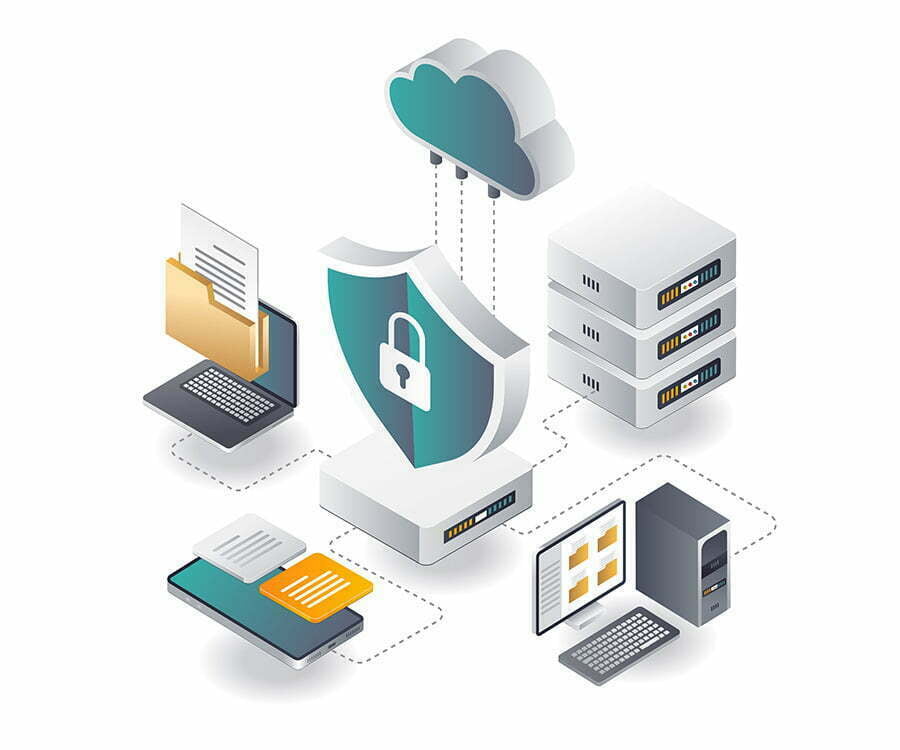Cloud hosting providers handle security updates and patches for the underlying infrastructure by automatically deploying them to ensure the system remains secure and up-to-date.
Cloud hosting is one of the most popular and efficient ways to host websites and applications. It offers scalability, flexibility, and cost-effectiveness that traditional hosting solutions cannot match.
But when it comes to security updates or patches for the underlying infrastructure, how does cloud hosting handle them? This blog post will explore how cloud hosting providers handle security updates or patches for their customers’ infrastructure. We will also look at how you can ensure your site remains secure in the face of potential threats.
Infrastructure Security

Cloud hosting security updates and patches for the underlying infrastructure refers to regularly updating software, hardware, and other components of a cloud-based system to protect it from potential threats.
This includes patching any vulnerabilities that may exist in the system or its components and installing new security measures such as firewalls or antivirus programs.
By keeping these systems up-to-date with the latest security patches and updates, cloud hosting providers can ensure that their customer’s data is kept safe from malicious actors. Regular maintenance helps to ensure that all parts of a cloud system are running optimally so that users can access their data quickly and reliably.
Software Patches

Software patches are updates to existing software that fix bugs, improve security, or add new features. Cloud hosting providers typically handle security updates and patches for the underlying infrastructure by automatically applying them as soon as they become available.
This ensures that all customers have the latest software version with the most up-to-date security measures in place. The cloud hosting provider will monitor for potential vulnerabilities and apply additional patches if needed.
This helps to ensure that customer data is kept secure and protected from malicious actors.
Cybersecurity
Cybersecurity protects networks, systems, and programs from digital attacks. These attacks usually aim to access, change, or destroy sensitive information, extort money from users, or interrupt normal business processes.
Cloud hosting providers take a proactive approach to cybersecurity by regularly patching their underlying infrastructure with security updates and patches. This helps protect against known vulnerabilities that malicious actors could exploit.
Security updates may include software patches for operating systems and applications and firmware updates for hardware components such as routers and firewalls.
By keeping their infrastructure up-to-date with the latest security measures, cloud hosting providers can help ensure that customer data remains secure and protected from potential threats.
Vulnerability Management
Vulnerability management is an integral part of cloud hosting security. It involves identifying, assessing, and mitigating any potential vulnerabilities in the underlying infrastructure that malicious actors could exploit.
This includes patching software and hardware to ensure they are up-to-date with the latest security updates and patches. Vulnerability management also involves monitoring for new threats or vulnerabilities that may arise over time and responding quickly to any identified issues.
By proactively managing these risks, cloud hosting providers can help protect their customers from potential attacks or data breaches.
Read Also
- What Are the Security Considerations When Using Cloud Hosting?
- How Do You Monitor and Manage a Cloud-hosted Website?
- What Are Some Common Challenges or Potential Drawbacks to Using Cloud Hosting?
- How Do You Troubleshoot Issues With a Cloud-hosted Website?
- How Does Cloud Hosting Support the Development and Deployment of Applications?